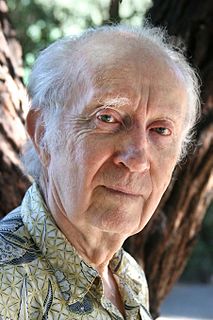A Quote by Edmund Beecher Wilson
Evolution on the large scale unfolds, like much of human history, as a succession of dynasties.
Quote Topics
Related Quotes
Moreover, it is so important that people have the opportunity to share their stories and have them documented. There have been large-scale oral history projects after many events, from September 11th to Hurricane Katrina. Many oral history projects are much more confined, but equally valuable. We can learn about different working conditions, living conditions, trauma experiences and much more through oral history.
By contrast with history, evolution is an unconscious process. Another, and perhaps a better way of putting it would be to say that evolution is a natural process, history a human one.... Insofar as we treat man as a part of nature--for instance in a biological survey of evolution--we are precisely not treating him as a historical being. As a historically developing being, he is set over against nature, both as a knower and as a doer.
It is essential for evolution to become the central core of any educational system, because it is evolution, in the broad sense, that links inorganic nature with life, and the stars with the earth, and matter with mind, and animals with man. Human history is a continuation of biological evolution in a different form.
Human history has become too much a matter of dogma taught by 'professionals' in ivory towers as though it's all fact. Actually, much of human history is up for grabs. The further back you go, the more that the history that's taught in the schools and universities begins to look like some kind of faerie story.
... placing economic activity in the context of the whole earth requires attention to the question of scale. Bigger is obviously not better, so the optimum scale of human economy in relation to the total economy becomes basically a question of sustainability. When the effects of the economy on the environment undercut the possibility of its own continuance, the scale is too large.
There does seem to be a sense in which physics has gone beyond what human intuition can understand. We shouldn't be too surprised about that because we're evolved to understand things that move at a medium pace at a medium scale. We can't cope with the very tiny scale of quantum physics or the very large scale of relativity.
The history of humanity is the history of human freedom...Freedom is not, as Engels thought, "the recognition of necessity." Freedom is the opposite of necessity. Freedom is necessity overcome. Progress is, in essence, the progress of human freedom. Yes, and after all, life itself is freedom. The evolution of life is the evolution of freedom.

































